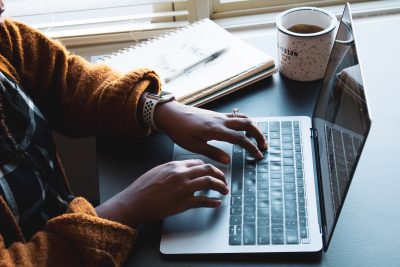Boston University’s Black Business Student Association organized a panel titled “Creating Your Own Path: Insight into the Freelance Industry” Thursday featuring two local freelancers: Jacquinn Sinclair, a performing arts writer and critic for WBUR’s The ARTery, and Hodan Hashi, a photographer with her own freelance business, Glotography.

Kesi Rose Sobtejou, president of the BU BBSA and a senior in the Questrom School of Business, said she wanted members to “see people who are being their own bosses,” especially in creative fields.
Freelancing is an increasingly popular pursuit, Sobtejou said, as she has seen a lot of people her age start their own businesses during the pandemic.
Sinclair and Hashi began the panel by explaining how freelancing was an unexpected career choice for them.
Hashi studied political science and African American studies at BU. Even though photography was only a hobby at the time, the idea of it being a career struck after she graduated in 2020.
Sinclair was originally a voice major before switching into journalism, she said. She was interested in writing but ended up interning at a Philadelphia radio station.
“I just told everyone, ‘I want to write, I want to write, I want to write,’” Sinclair said. “One day, somebody listened to me, and she gave me a shot.”
The panelists also addressed some misconceptions surrounding freelancing, such as that freelancers have complete flexibility.
“If you’re freelancing for a major publication, you’re still bound to their posting schedule,” Sinclair said. “But what you will have flexibility over is what kinds of things you’d like to do.”
Both freelancers said there are many things they have to handle behind the scenes, such as ideation, pitching and branding.
Hashi said she struggled with discipline and time management, especially since she was balancing Glotography with her 9 to 5 job.
Motivation is a consistent struggle for Sinclair, she said, not because of a lack of enjoyment but because of time and other restrictions.
“I think it’s important to create that space to just get yourself to do nothing,” she said.
Joanne Charles, a freshman in Questrom, said she appreciated that the panelists were transparent about their past and current struggles.
“They’re being honest and not trying to hide or sugarcoat the job,” Charles said after the panel. “I definitely felt that was cool.”
Both Sinclair and Hashi encouraged students to start as early as possible. Sinclair started freelancing early and found it provided room to ask questions and make adjustments to her plans.
“Do it now,” Sinclair said. “There’s no reason to wait.”
Similarly, Hashi said jumping right in gave her time to develop skills, build her personal brand and make connections. People considering freelancing should not put themselves under too much pressure, she said, but rather take time to understand what they enjoy doing.
“Nine times out of 10, you can turn it into a way to make money,” Hashi said.
Sobtejou said the freelancing experience may be different for people of color due to lack of access.
“When you’re doing something on your own, it’s all about who you know,” Sobtejou said, “and that may be more difficult for people of color who may not have as much access as their white counterparts.”
Because communities of color “really prioritize stability,” Sobtejou said, freelancing tends to be less respected by immigrant families.
Sobtejou said she hoped Thursday’s panel helped members of BU BBSA understand the importance of passion in the process.
“If you like what you’re doing,” she said, “the busy schedule and the work is not as bad because the result at the end is great.”














































































































